Six Questions for Indiana’s Prospective Utility Regulators
As Hoosiers endure the harshest energy cost crisis in two decades, Indiana officials are preparing to publicly interview and select the next three appointees to the commission that essentially acts as the referee overseeing our state’s monopoly utilities and our electric rates.
The Indiana Utility Regulatory Commission or IURC is a regulatory body that most Hoosiers have never heard of but that holds tremendous power over the power in their lives.
The new commissioners, who will be interviewed next week, will play an important role in shaping the state’s future energy decisions at a time when our energy future is quite uncertain, with costs rising and energy demand changing as data centers and other large customers compete for existing resources.
Gov. Braun has publicly committed to doing whatever it takes to lower Hoosiers’ bills and provide much-needed relief. Having three open positions on the five-person board means the new members will form a majority. And the Governor gets to pick the winning candidates once the interviews are over. He has the power to reshape the IURC to put Hoosiers first.
As the selection process begins, it’s important to understand that the IURC doesn’t have its own power to act. Commissioners regulate based on instructions given to them by state lawmakers and information provided by utility companies.
Lawmakers often use the phrase “just and reasonable” when giving the IURC their regulatory power. Absent strict direction from the legislature, the IURC has some latitude to determine what is “just and reasonable” for consumers, utilities and our state. That’s why the role of our commissioners is so important as our energy landscape continues to rapidly change.
When a utility wants to raise rates—which determines your monthly bill—build a new power plant, retire an old one or make major upgrades to its system, it usually has to get approval from the IURC. The IURC reviews those requests carefully to decide whether they make sense for both the company and its customers. It looks at the utility’s costs, projected needs and profits to ensure that any rate increases are fair and justified.
The IURC holds public hearings and ultimately issues formal decisions that carry the force of law. These decisions shape how Indiana meets its future energy needs, from how much power the state will require to what kinds of energy sources, such as coal, gas and renewables, will be used to meet that demand.
The goal is to strike a balance between affordability for customers and financial stability for the companies providing essential services. Right now, many Hoosiers feel like that balance is off.
As interviews begin the week of October 27, here are six questions we hope potential IURC commissioners will be asked:
- How will you leverage modern technology and approaches to make decisions that prioritize ratepayers and balance reliability, resiliency, stability and community health?
- Do you have any financial interests, such as stocks or securities in utilities, that would create a perceived conflict of interest should you be selected for this position?
- How do you plan to make the IURC’s decision-making processes more publicly accessible and transparent?
- What mix of energy sources do you believe our state needs to embrace to ensure reliability while pursuing the lowest possible costs for consumers?
- What are your experiences with different energy sources, generation models, regulatory models, energy efficiency or electrification programs and distributed resources?
- What do you believe is causing Indiana’s energy costs to rapidly increase, such as allowed rates of return on equity (ROE), energy demand, inflation, or supply chains, and what do you believe the state should do about it?
While the public does not currently have an opportunity to directly be involved in interviewing potential IURC commissioners, you can send additional questions you would like Gov. Braun to ask candidates.
These questions and this process present an opportunity for Gov. Braun to carefully vet and thoughtfully select commissioners who will use whatever flexibility lawmakers give them to protect Hoosier consumers from unfair practices, ensure utilities deliver reliable services and help guide the state’s long-term energy and infrastructure planning.
Delaney Barber Kwon is Director of Government Affairs for Indiana Conservation Voters.



